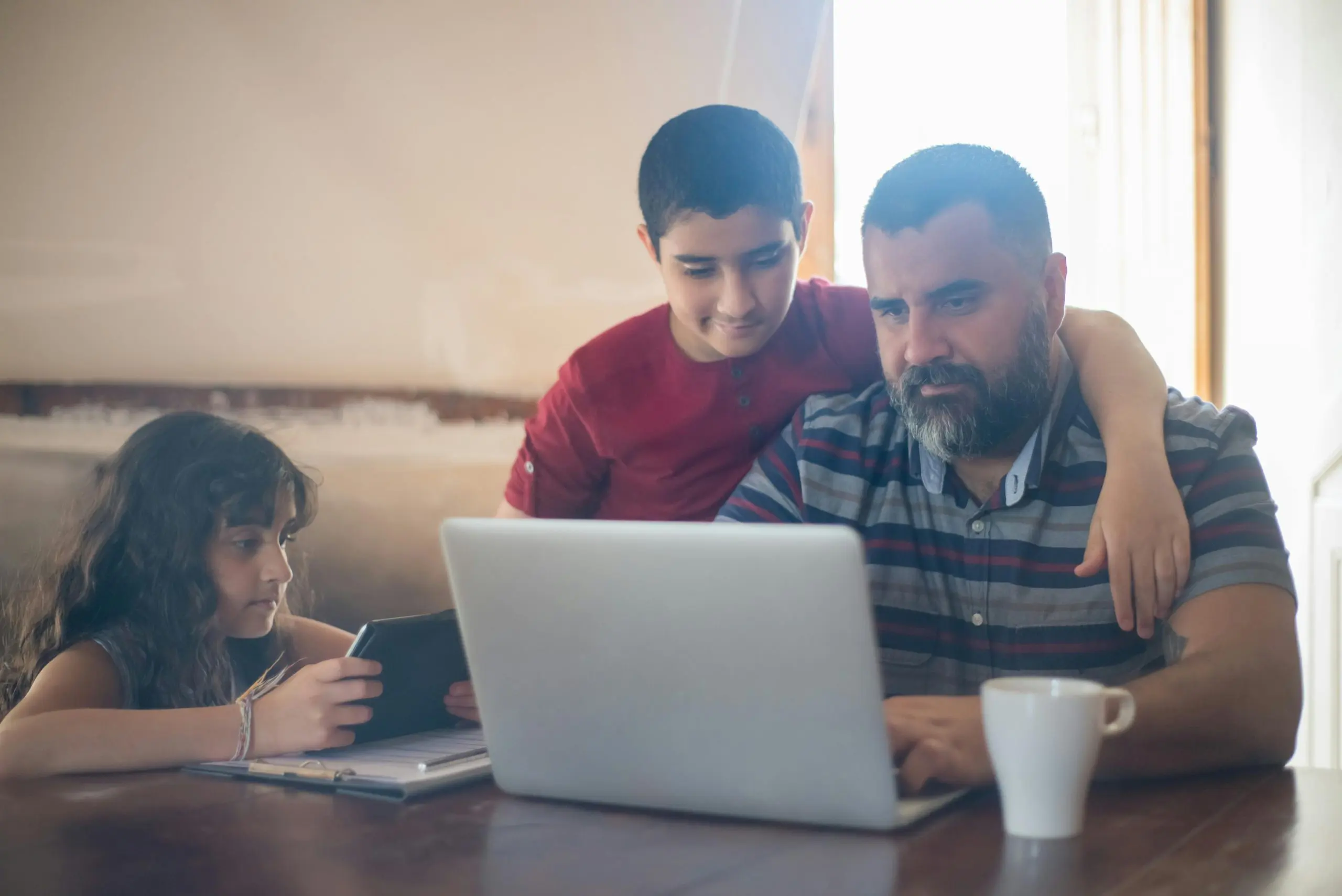Coping with anniversaries and special days after someone has died

In the immediate aftermath of the death of someone important, children and young people will feel many emotions, which can often resurface on special dates such as anniversaries and birthdays. How do you manage those days? Is it okay to remember? Is it okay to avoid remembering on that day? What can you do on those days? How do you cope with the mix of emotions we might have or not have?
Which days will be difficult for bereaved children and young people?
Firstly, there are the obvious days when grief might be heightened, such as birthdays, wedding anniversaries and the anniversary of the day that person died (sometimes called a death anniversary). Then there are days when families traditionally celebrate together, such as Christmas, Hanukkah, Diwali and Eid al-Fitr.
However, there are also many more dates that will be special for individuals, and, especially for children, there will be days when that important person would have always been there, either physically or on the phone. Perhaps the last day of the school term, a date everyone went on a special holiday in the past, their own birthday, or graduation day. These are all really important days, and it can feel hard when they are approaching and happening.
Should we remember the day or avoid it?
Everyone’s grief is individual and when anniversaries and special days are approaching everyone will have different feelings about them. What we have learnt from speaking to so many families, is it can be really helpful to be mindful of the days and help children to make a conscious decision of how to manage the day in a way that feels ok for them and you.
It could be that the child decides that it just feels too painful to focus on that person on that day. By acknowledging this is a difficult day for them, you and the child are actively deciding what you are going to do to manage it. This may involve going to do something completely different to what you normally would do, which might help the memories and feelings from being too overwhelming.
If the child feels they want to and can do something that day to connect with the person who has died, then it is really important to help them do this and it can help to make a plan – see below for some ideas for how you could mark the day.
It could also be that everyone feels differently about how they want to spend the day. In this case, you could agree to do something at a certain time in the day to remember, for example, in the morning, which gives everyone the time to remember and connect with the person who has died, but also gives everyone permission to have some time out from remembering. It might feel overwhelming to be thinking about memories for too long.
Some children and young people may feel like they need the structure and routine of a school or work day on special occasions. It’s completely okay if they want to go into school or work, and you could suggest they make their teacher or colleagues aware that today is a special day and they may be more emotional than normal or need a time out.
It’s really important to remember that it is completely normal for everyone to feel differently. Choosing to do something, or not to do something, does not mean that the child’s love and grief are any more or less than anyone else’s. It is also normal for the child to feel differently next time an anniversary comes round – keep checking in with everyone about how they want to mark the days.
It can also really help if friends, colleagues, school teachers, and other people around the child or young person can make a note of the days that are important so they can reach out with support at those times.
Ways to cope with your grief on anniversaries and special days
It doesn’t matter how much time has gone by, anniversaries, birthdays and special days are important and can feel comfortable and comforting or/and difficult to face.
It’s really important to help your children know how to look after themselves and be kind to themselves on these days. You could talk together about what helps.
Let them know you want them to ask for the support they need. Help them to think about the people who will understand that the feelings they felt for the person when they were alive can be just as strong, and more, now they are not physically with them.
Encourage your children to take time to relax on these days – maybe having a nice warm bubble bath, talking with their friends, playing on their Xbox, eating nice food. Doing this on these days can really help, and make it feel a little easier.
As a parent or carer, it is also important that you get the chance to follow some of these ideas. The special days are difficult for you too, and if you look after yourself and do the things that can help you, it shows your children how they can do it too.
10 ways you can mark death anniversaries, birthdays and special days
1. Set aside a special place on that day in which to remember the person who died. You could light a candle, put a picture or photograph up, or place items that remind you of things you did on this day with them in the past. Family members can spend time alone or together in this place, taking a few moments to remember.
2. Make or write a card. You could take this to the grave or to where their ashes are scattered, or just keep it in your home – children will know where it feels write to put it.
3. Write a letter to the person. If you have things you would like to tell them or say to them on special occasions, you could write it down. Either keep the letter in a safe place or rip it up, whatever feels right for you to do. There are no right or wrong feelings to have. If you want to write to them about how angry you are, that’s okay too. Ask family members or friends to write special messages or capture special memories and send them to you. You could keep them in a book or hang them up or stick them to a mirror or wall.
4. Listen to their favourite music.
5. Begin to make a memory box in which to keep things that remind you of the person. e.g. photos, shells, tickets, aftershave, lipstick…
6. Create a digital memory board of special photos or post a photo of them on social media. Ask other people for their photos of the person who died and begin to compile their ‘life story’ in pictures. If appropriate, you could include memories from the day you are remembering.
7. Cook their favourite meal or cake, or order their favourite takeaway.
8. Write them a letter, a poem or a song. Maybe you could start with something like: “If you came back for just five minutes, I’d tell you…”
9. Spend time with others who would also like to remember the person on that day; this can be physically together, but it can also be through video calls, where you can all see each other and have time to talk and support one another.
10. Treat yourself with something that you feel connects you with the person who died. It may be their birthday, so spend the money you would have spent on something for them on something that feels special and will connect and remind you of them.
Where to get support
If you need advice on supporting a child on anniversaries, birthdays and special days, we’re here to help. Our team of bereavement specialists are available to speak with right away. No appointments or waiting lists, just real-life grief support. Call us on 08088 020 021 (open 8am-8pm, weekdays), email ask@winstonswish.org, use our online chat (open 8am-8pm, weekdays) or text or WhatsApp us on 07418 341 800 (open 8am-8pm, weekdays). You must be 13 or older to receive support via WhatsApp.
For urgent support in a crisis, please call 999.

Other articles you might find helpful

Publications and resources
Our specialist publications and resources to help parents and professionals to support bereaved children of all ages and circumstances.

Activities for bereaved children
Activities to help grieving children and young people express their feelings and to help them maintain memories of the person who has died.
Connect with us
Sign up to our newsletter and follow us on social media for all our latest news and advice on supporting grieving children and young people.

